|
9/7/2021 “Whoever loses his life for my sake will find it”: Proclaiming Christ’s Challenging Call to LoveRead Now
“Then Jesus said to his disciples, ‘Whoever wishes to come after me must deny himself, take up his cross, and follow me. For whoever wishes to save his life will lose it, but whoever loses his life for my sake will find it’” (Mt 16:24-25).
This summer, I’ve been blessed with the opportunity to work as an intern for the Catholic Apostolate Center and collaborate on several catechetical projects with other staff members there. One of these projects was the creation of a new version of From Practicing Catholics to Apostles on Mission, a faith formation course for those who want to delve more deeply into their faith and become more actively involved in the Church. Since many of the program’s participants are young adults, drafting lessons for this course allowed me to reflect on the unique opportunities and challenges that come with speaking to young adults about the Faith. This task always involves a special focus on presenting Church teaching in a way that is clear, approachable, and attractive. But with this task comes a special challenge: how can we avoid the temptation to “water down” the faith or to omit or sugarcoat its more difficult truths? How can we imitate the most perfect preacher, who stated plainly: “Take up your cross and follow me” (Mt 16:24)? One of the Apostles on Mission sessions on which I worked focuses on the universal call to holiness. It seems to me that this teaching is one that we must take care to proclaim in its fullness, especially when speaking to young people: “The Lord Jesus, the divine Teacher and Model of all perfection, preached holiness of life to each and every one of His disciples of every condition…Thus it is evident to everyone, that all the faithful of Christ of whatever rank or status, are called to the fullness of the Christian life and to the perfection of charity” (Lumen Gentium 40). This message shatters the common assumption that holiness is attainable by only a few individuals who perform extraordinary works. It reveals that holiness consists instead in the “perfection of charity” and thus is truly possible for everyone, because although we cannot all accomplish great or miraculous deeds, we can all act with great love. Proclaiming this universal call to holiness is particularly important because—while we hear the commandments over and over—"Love the Lord your God with all your heart…Love your neighbor as yourself”—a very subtle but serious temptation can creep in. Namely, we can be tempted to love only when it is easy, when we find the other person agreeable, when we think they deserve it. But in fact, the perfect love that Christ commands is often difficult. It is difficult to love God daily by resisting temptation, practicing self-denial, and committing ourselves to regular prayer. It is difficult to love our neighbor on a daily basis by treating them with patience, forgiving their faults, and making a generous gift of ourselves to them. Pope St. John Paul II summarized it well in his address to the young people of Boston: “Real love is demanding. I would fail in my mission if I did not clearly tell you so. For it was Jesus—our Jesus himself—who said: ‘You are my friends if you do what I command you’ (Jn 15:14). Love demands effort and a personal commitment to the will of God. It means discipline and sacrifice, but it also means joy and human fulfillment” (Holy Mass on Boston Common, 1979). St. John Paul II not only acknowledges the difficulty of Christ-like love, he also emphasizes that he has a duty to proclaim this difficulty to the Church. He recognized that if we are not warned that “real love is demanding,” we will inevitably discover this reality through our own experience. And if we are not prepared for difficulty, one of two tragic results will likely occur. Finding love demanding, we may be tempted to believe that Jesus didn’t really mean “Be perfect, just as your heavenly Father is perfect” (Mt 5:48) and might ease up and only love when it is easy. Alternatively, we might be tempted to give up in despair, like the rich young man of the Gospel who was taken aback by Jesus’ demanding invitation and “went away sad” (Mk 10:22). Although we must proclaim to young people the difficulty of what Jesus commands, we can also provide them with the hope that enables all Christians to rise to the challenge that lies before them. The first hopeful reminder is this: God is the one who sanctifies us, who always gives us the grace we need to fulfill his call. Cooperating with this grace does require that we are willing to say “yes” to the daily opportunities to undertake the difficult work of loving. But the further hopeful news is that God generously provides hundreds of these opportunities every day. As Pope Francis illustrates in his apostolic exhortation, Gaudete et Exsultate: “This holiness to which the Lord calls you will grow through small gestures. Here is an example: a woman goes shopping, she meets a neighbour and they begin to speak, and the gossip starts. But she says in her heart: ‘No, I will not speak badly of anyone.’ This is a step forward in holiness. Later, at home, one of her children wants to talk to her about his hopes and dreams, and even though she is tired, she sits down and listens with patience and love. That is another sacrifice that brings holiness. Later she experiences some anxiety, but recalling the love of the Virgin Mary, she takes her rosary and prays with faith. Yet another path of holiness. Later still, she goes out onto the street, encounters a poor person and stops to say a kind word to him. One more step.” A third word of hope: Every time we take one of these “steps”—loving even when it is hard—we train our heart, like runners training for a marathon. With each step, our heart grows stronger, and it becomes easier to love the next time. One more message of hope can be found at the end of St. John Paul II’s words that I quoted before: “[Love] means discipline and sacrifice, but it also means joy and human fulfillment” (my emphasis). This message was closely echoed by another great saint of modern times: St. Teresa of Calcutta. She wrote: “We should ask ourselves, ‘Have I really experienced the joy of loving?’ True love is love that causes us pain, that hurts, and yet brings us joy. That is why we must pray and ask for the courage to love.” When we consider the words of both saints, there initially seems to be a contradiction—how can love cause both pain and joy? But this is ultimately the same paradox that lies at the heart of the Gospel: Christ promises that only he who “loses his life for my sake will find it” (Mt 16:25)—that is, only if we “lose” our life in self-giving can we find lasting fulfillment in this life and eternal happiness in the next. It takes courage and great faith to believe in this promise of Christ, but there are two places we can find evidence to support it. The first is in the witness of St. John Paul II and St. Teresa of Calcutta themselves, along with the countless other saints whose lives witnessed to the truth of their words. These men and women loved with total generosity even when it was difficult; they faced many additional sufferings, and yet they were filled with joy—a joy so radiant and constant that it could not have been a mere appearance. We can also find evidence in our own experience that proves the opposite side of this truth: when we have tried to fill our hearts and lives with things that aren’t God, we have all experienced how quickly happiness flees and gives way to emptiness and sorrow. By witnessing the joy of the saints and recalling our own sorrow when we deviate from the path they trod, we can trust that over time, as we continue the demanding work of striving to love as Christ loved, He will gradually reshape our hearts and help us experience the joy that sacrificial loving brings. In summary, when we share the Gospel with young people, we must take care to speak the fullness of the truth and tell them of both the joy and suffering that accompanies the lives of those who follow Christ. By doing so, we help them avoid the fate of those who excuse themselves or fall into despair when they feel the weight of the cross. But even more, doing so helps them find the narrow path that leads to the life they most desire, “life in its fullness,” as St. John Paul II describes: “Jesus does not ask us to give up living, but to accept a newness and fullness of life that only He can give. The human being has a deep-rooted tendency to ‘think only of self,’ to regard one’s own person as the center of interest and to see oneself as the standard against which to gauge everything. One who chooses to follow Christ, on the other hand…looks on life in terms of gift and gratuitousness, not in terms of conquest and possession. Life in its fullness is only lived in self-giving, and that is the fruit of the grace of Christ: an existence that is free and in communion with God and neighbor” (Message for World Youth Day XVI, 2001). It has been a great gift to collaborate with the Catholic Apostolate Center in their efforts to help others recognize and respond to God’s call to holiness, to the fullness of life. May all of us—of every age—heed this call. May we have the courage to proclaim the fullness of the truth, the strength to love when it is difficult, and the confident hope that doing these things will bring the profound peace and joy that we seek.
1 Comment
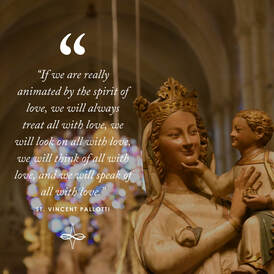 What motivates us to do what we do? If it is love, then we are called to “will the good of another” (St. Thomas Aquinas quoted in the Catechism of the Catholic Church, 1766). The object of our love is not ourselves or our self-interest. It is God and neighbor. St. Vincent Pallotti universalizes love in this way: “If we are really animated by the spirit of love, we will always treat all with love, we will look on all with love, we will think of all with love, and we will speak of all with love” (OOCC III, 338). This type of love requires sacrifice and generosity. Of course, the greatest act of love was the sacrifice of Christ on the Cross. We see generosity and sacrifice in the Blessed Virgin Mary saying “yes” to the Angel Gabriel and St. Joseph setting aside what he wanted to do and always doing the will of God. Sacrificing ourselves for the other, thinking not of self, but the other, is not a typical way of behaving. We seem to be able to do it on a small scale with those closest to us, which is the place to start. Bit by bit, through self-sacrifice, a generosity of spirit grows, love grows. Does this happen on its own? No, the Holy Spirit is moving in and through each of us. The grace of God gives us the ability to sacrifice and be generous, moving us toward universal love. May the charity of Christ urge us on!
“O my people, I will open your graves and have you rise from them, and bring you back to the land of Israel. Then you shall know that I am the LORD.”-Ez. 37:12-13 “Come out!” The words reverberate and resound in the stench-filled tomb. We too need to hear the words proclaimed to the dead man as we approach the end of our Lenten journeys. Come out! Lent has been our own time of preparing for resurrection—abstaining from anything that deadens us to the voice of Christ inviting us to the fullness of life. For the past few weeks, we have participated in spiritual practices that renew and refresh our spirits. We’ve journeyed with Jesus in our own deserts. And the culmination of this journey is about to occur in only a couple more weeks. Lazarus’ resurrection precedes the Resurrection that changes everything. It is a glimpse of what awaits us after death. The once rotting man stumbles out of the dark and into the light of Christ—his dear friend. Lazarus’ sisters, Mary and Martha, do not even say his name when telling Jesus of his illness, but identify him simply as “the one you love.” The one you love…What a beautiful way to be identified. I think about this for a moment before realizing this is what we are all called to and all invited to: to be the ones Christ loves. This short phrase is our deepest identity as baptized sons and daughters. We are the ones He loves. And as we prepare for Holy Week and Easter Sunday, this reality will be fully demonstrated: “For God so loved the world that he gave his only Son” (John 3:16). Jesus will tell us on Good Friday, embracing us with arms wide open on the Cross, “you are the one I love.” As a result of this great gift, Christ can call us to resurrection—not only after death, but in the here and now. So many realities in our world today threaten to numb us from this true reality. Perhaps we find ourselves in Mary’s shoes. When she and her sister hear of Jesus’ coming, Martha runs to meet Him, but Mary stays where she is. Was hope dead within her? Was she too consumed with her grief to dare to have faith? Did death have the last word? Perhaps many of us feel the same way: disillusioned. Tired. Grieving. Doubtful. But Mary’s sister, Martha, shows us another way. Her path leads to the resurrection of her heart in the here and now. In today’s Gospel, the sisters seem to have traded places. Today, it is Martha who chooses the better part. She runs to meet Christ at the moment she hears of His coming. In spite of any doubt, fear, disillusion, or grief—she acts in hope. And this leap of faith is what enables her to give Jesus her all and say, “Lord, if you had been here, my brother would not have died. But even now I know that whatever you ask of God, God will give you.” (emphasis added) (John 11:22) In these words, I hear her say, “Lord, I am disappointed. I am grieving. My brother has died and you were not here. Had you been here, he would have lived. But I give this desire to you. I trust in you. Let it be done according to God’s word.” This, in a sense, can be Martha’s fiat. Her surrendered disposition, mixed with faith, trust, and hope, is what then enables her to confirm, “Yes, Lord. I have come to believe that you are the Christ, the Son of God, the one who is coming into the world.” Martha has joined the woman at the well and the Apostle Peter in confirming Christ’s identity as the Messiah. She has “come out” of her own tomb. This past calendar year has likely felt like a tomb for many of us. Perhaps we feel most like the seemingly abandoned Lazarus languishing in the dark. “Where were you, Jesus?” we may ask with Mary and Martha. “Do you not care that the one you love is suffering?” Jesus does more than care. It is so comforting to read that “Jesus wept” at the knowledge of Lazarus’ death and became greatly perturbed. I can imagine the same, if not a greater, reaction at the death of his earthly father, Joseph. Christ weeps at our suffering. The Creator shudders to see His creation perish. This is not what we were made for. And in His humanity, Christ weeps with us and for us. But not only will the Son of God weep for His loved ones; He will die for them in just a few days. It is not enough for Him to acknowledge our suffering—He takes it on. He transforms it. He transfigures it. He resurrects it. As we approach the end of the Lenten season, let us not stay put with Mary but run out with hope like Martha. I pray this Easter Sunday to say firmly with her, “Yes, Lord. I have come to believe that you are the Christ, the Son of God, the one who is coming into the world.” We are the ones whom He loves. Let us spend some time relishing, resting, and growing in this identity in the remainder of the Lenten season and beyond. In these final weeks of Lent, let us continue to “come out” of our tombs with our prayers, fasting, and almsgiving so that we may not stumble as Lazarus did but run out towards Him who calls our name. Let us come out into the light. For more resources to accompany you on your Lenten journey, please click here. Click here for this Sunday's Mass readings. “Remember the days past when, after you had been enlightened, you endure a great contest of suffering. At times you were publicly exposed to abuse and affliction, at other times you associated yourselves with those so treated. You even joined in the sufferings of those in prison and joyfully accepted the confiscation of your property, knowing that you had a better and lasting possession. Therefore, do not throw away your confidence, it will have great recompense. You need endurance to do the will of God and receive what he has promised. ‘For, after just a brief moment, he who is to come shall come, he shall not delay. But my just one shall live by faith, and if he draws back I take no pleasure in him.’ We are not among those who draw back and perish, but among those who have faith and will possess life.” -Hebrews 10:32-39 We are living in an extremely tumultuous time. For over a year, a virulent sickness has swept over the world and caused havoc with our health, our economies, and the very way we relate to one another. It has separated us from friends, co-workers, extended family, and our church community, to name a few. In battling its transmission, we have been forced into isolation—severely limiting gatherings, celebrations together, and even sharing hugs. We have been stretched beyond our normal mode of living and the equilibrium of our lives has been disturbed, with no end clearly in sight. On top of all this, we have experienced political and social unrest – polarized groups rising against one another, causing great division instead of building unity. For any individual, these circumstances could easily defeat us and have us succumb to despair. I think of the Marty Haugen song many of us sing every year during Advent: “For you, O Lord, my soul in stillness waits, truly my hope is in you.” It resounds in my mind and heart as we traverse through such unsettling circumstances. Amidst all the unknowns and unrest, I have witnessed a beautiful vision that overrides all the devastation of the circumstances we are in. I have seen people sacrifice to care for others and people coming together to celebrate the joy of life in trying situations. I have witnessed God living and walking among us through the selfless individuals choosing to stand tall in faith and do all things in love. As Christians we are taught “God is love.” We were created out of love, for love. We are part of God’s great creation and we belong to Him. He guides, instructs, and protects us always. What a magnificent testament to hope in! We pray in our Creed: “I look forward to the resurrection of the dead and the life of the world to come.” This is part of what we profess at Mass before we enter into the liturgy of the Eucharist – which is the source and summit of our faith. We receive the Body, Blood, Soul and Divinity of our Lord to nourish us in body and spirit. This profession of faith, this gift of communion, allows us to walk through all the adversities of life as joyful people who understand our hope lies not in this world but in heaven, forever. This living hope comes from being nurtured by the stories from Scripture, being taught prayers and devotions, receiving the sacraments of Reconciliation and Eucharist frequently, singing hymns of praise and thanksgiving, and practicing acts of kindness daily. What an ironclad defense we have against any evil that would afflict our body or soul! How beautiful it is that as Christians we can be united together in faith wherever we are. This is how I have remained steadfast in hope and overcome fear during these trials that continue to badger us. Surrounding myself with pictures of the Holy Family, the saints, the crucifix, listening to Christ-centered music, praying novenas and prayers, attending Mass often, and sitting in the quiet and listening for God to speak to me are all ways I actively participate in being a person of hope. Even more simply, just keeping my home clean and neat makes it a peaceful sanctuary where I can experience God’s presence. I have no control over the things of this world that loom large over me, but that is okay. As long as I adjust my spiritual armor and remain grounded in Christ, I have every reason to walk in hope, joyously, no matter the circumstances. My husband I adopted the habit of praying Saint Patrick’s Breastplate each morning before going out into the fray and it has born much good fruit in our lives. I offer it to you as another tool to assist you in the battle against evil. We are children of light, born of love and destined for heaven. We belong to Him. He made us a community and all around the world, individually and in groups, we profess our faith boldly, we share His message of love constantly, and we support one another in solidarity of His kingdom. It is our job to remain in Him and He will supply all the grace needed to walk tall in hope. As St. Teresa of Avila said: ‘God withholds Himself from no one who perseveres.’ For more resources to guide you through the COVID-19 pandemic, please click here. For more resources on prayer, please click here. It seems that each day we check the news to discover that another politician, producer, actor, or celebrity figure is being exposed for scandal or abuse. Many of those who have for years been hailed as the main influencers of public opinion, policy, and taste have in a stunningly short span of time lost support or credibility. Many of those who were on top of the world have been, we could say, deflated and dethroned. I have been pondering this lately as the Church prepares to celebrate the Solemnity of the Ascension of the Lord. Each Sunday in the Nicene Creed, we profess Christ’s ascension, “He ascended into heaven and is seated at the right hand of the Father.” The ascension is recounted at the beginning of the Acts of the Apostles (Acts 1:6-12). Theologically, we do not envision Jesus ascending like a balloon into the sky, but a king ascending a throne. The Feast of the Ascension celebrates the exaltation and enthronement of Jesus as King and Messiah at the right hand of God the Father in heaven. As many of us may be scientifically literate and democratically-minded citizens of the twenty-first century, we may think all this talk of thrones and kings and heaven may seem like it belongs to a world that has long passed away. But if our recent headlines have proven anything, what has not passed away is the perennial pursuit of power and our tendency to underestimate our willingness to use it in potentially harmful and self-aggrandizing ways. Power in and of itself is not an evil thing, and watching people fall publicly is not a cause for celebration. I think instead the present reality invites us to pause and reflect on—in light of God’s reality—the pursuit and exercise of power both in society and in our own lives. In truth, power is not something that belongs only to the powerful. Power exists across any human relationship: husband and wife, parent and child, teacher and student, boss and employee, and the list is endless. We are influenced vertically by our superiors and horizontally by our peers. Ideally, we work together to achieve the common good and common goals by sharing and exercising power in the right doses and ways. But I think if we’re honest, we all have our own way of being out of balance, tipping the scales. So, what does this all have to do with Jesus, who we call the All-Powerful One? As exalted King and Messiah, Jesus overthrows the love of power with the power of love. The Ascension is not a power grab that Jesus will use to control people and outcomes. Rather, we hear Jesus tell the disciples that once he has taken his seat on God’s throne, “you will receive power when the holy Spirit comes upon you, and you will be my witnesses in Jerusalem, throughout Judea and Samaria, and to the ends of the earth” (Acts 1:8). As disciples, we are not separated from Christ by a glass ceiling. Yet as disciples, we have to be careful where and how we exercise this power given to us in the name of Jesus. One of the images in Scripture of the Holy Spirit is fire. It is a great metaphor for power. Our stewardship of God’s power can bring light and warmth, yet it can also burn if used irresponsibly. I suspect today that much of what compromises our evangelizing message of Jesus’s kingship stems from the ways Christians have abused earthly power in the name of God. The Gospel and St. Paul preach a radically different alternative: the conviction that our human exercise of power more fully manifests Christ when it is surrendered than when it is wielded. So, I propose instead: What happens when we dare to profess Jesus enthroned and exalted, to receive the power of his Holy Spirit, and then lay it down in the service of the Gospel? Question for Reflection: How is Christ’s example of kingship and power different from what we see in the world? “If we are truly animated by the spirit of love, we shall always treat all with love, look on all with love, think of all with love and speak of all with love.” – St. Vincent Pallotti What does it mean to be “animated by the spirit of love?” Jesus said to his disciples that his commandment is “love one another as I love you” (John 15:12). If we believe ourselves followers of Christ, then we must follow this commandment. St. Vincent Pallotti, whose feast day is today, gives us how we do that – treat, look, think, and speak of ALL with love. That is where the challenge is – to do it for all. Pallotti understood that our love, seen as charity, is universal. Pope Francis reminds us in his Encyclical, Fratelli Tutti: “People can develop certain habits that might appear as moral values: fortitude, sobriety, hard work and similar virtues. Yet if the acts of the various moral virtues are to be rightly directly, one needs to take into account the extent to which they foster openness and union with others. That is made possible by the charity that God infuses. Without charity, we may perhaps possess only apparent virtues, incapable of sustaining life in common” (91). Civil and ecclesial unrest, including revolution, as well as pandemic were common things in the Rome of St. Vincent Pallotti’s day in the first half of the nineteenth century. Yet, it did not stop him from recognizing the call of all believers in Christ to go forth as his apostles and witness God’s infinite love to a world that so desperately needed to experience it. Today is no different. We are called to do the same. May the charity of Christ urge us on!
On October 17th, the Catholic Apostolate Center celebrated its ninth anniversary of reviving faith, rekindling charity, and forming apostles in the spirit of St. Vincent Pallotti. The Founder of the Union of Catholic Apostolate, the Pallottine Family, gave these words of St. Paul as a motto, “the charity of Christ urges us on” (2 Cor. 5:14). Pope Francis writes in his new Encyclical Letter, Fratelli Tutti, about the nature of this charity: “Charity, with its impulse to universality, is capable of building a new world” (183). As Catholics, we do not reserve our charity simply to those we find acceptable. Our charity is universal, it is catholic, in the broader sense of the word. No one is exempt from offering it and we cannot exempt anyone from our charity. Nor should we reject the charity of another, if we understand charity to mean, as St. Thomas Aquinas did, ‘willing the good of the other.” Charity evangelizes us all. For St. Vincent Pallotti, the apostle, the one who is sent by Christ, never disconnects faith and charity. They are intimately connected to one another. Less than a week prior to the founding of the Catholic Apostolate Center in 2011, Pope Benedict XVI put it this way in Porta Fidei: “‘Caritas Christi urget nos’ (2 Cor 5:14): it is the love of Christ that fills our hearts and impels us to evangelize” (7). As we celebrate our ninth year, we are grateful for the opportunity to live these words. As a ministry of the Pallottine Fathers and Brothers of the Immaculate Conception Province, we continue to serve the Church and the world. On behalf of the Pallottines, thank you to all staff members, collaborators, advisors, collaborating organizations, benefactors, and everyone who uses and promotes our resources. There are many new ones to come. The Center team is in thanksgiving to the Holy Spirit for guiding us to this day and for aiding us in the future. May the Charity of Christ urge us on!
Yesterday we celebrated the Memorial of Our Lady of the Rosary--a Feast Day that reminds of the important role that the rosary plays in our daily lives. It is a form of prayer that we seek when we are struggling and need the comforting embrace of a mother. It is a form of prayer that is joyful, celebrating our successes with Christ through Mary.
Devotions to Mary have always been an important aspect of my faith. In particular, the rosary has helped me through many tough times in my life and given me the strength to continue forming my life to Christ, but its importance was reinforced in the first few months of my college career when I joined the Knights of Columbus. Upon entering the Order, Knights are given a rosary as a symbol of our devotion to Mary and a reality of our reliance on her example and her intercession with God But why should we say the rosary? Saint John Paul II gives a clear picture of the rosary’s importance: “The Rosary mystically transports us to Mary's side as she is busy watching over the human growth of Christ in the home of Nazareth. This enables her to train us and to mold us with the same care, until Christ is “fully formed” in us.” When we pray the rosary, many of us are seeking the warm embrace of a mother, someone who can reassure us in our fears and give us the strength to live out each day for Christ. Mary is our mother in every sense of that word. Christ, moments from death, says to Mary, “Behold, your son,” and to the disciple whom he loved, “Behold, your mother.” With these words Christ gives Mary to all of us as our mother, the Mother of the Church, and with these words we are formed by her just as Christ was. The rosary does not pull our attention away from Christ, but rather joins us with him through our love of Mary. John Paul II tells us in Rosarium Virginis Mariae, “Never as in the Rosary do the life of Jesus and that of Mary appear so deeply joined. Mary lives only in Christ and for Christ!” The rosary allows us to participate in that union and calls us to share in the life of Christ through our relationship with his Mother. Each time we pray the rosary we focus on the Joyful, Sorrowful, Glorious, or Luminous mysteries. These are not only drawing us closer to Mary, but to the life of Christ as each set of mysteries is grounded in the Gospel. When we pray the rosary we do not just repeat prayers over and over again, but rather we are given the opportunity to live out a different aspect of the life of Christ with each decade. Repetition is an important aspect of the rosary, but is it actually repetition? Archbishop Fulton Sheen in his book “The World’s First Love” tells us that it is not repetition for each time we say the rosary, “we are saying to God, the Trinity, to the Incarnate Saviour, to the Blessed Mother: "I love you, I love you, I love you." Each time it means something different, because, at each decade, our mind is moving to a new demonstration of the Saviour's love.” Who better to remind us of the Christ’s love than Mary, the Mother of God, our mother, who raised Jesus, formed him, and followed him. Who better to emulate than Mary, who watched her son suffer and die on the cross for our salvation. Each time we say the rosary we are embraced by our mother, we are renewed in our faith, and we are reminded of God’s love. “Remember, O most gracious Virgin Mary, that never was it known that anyone who fled to thy protection, implored thy help, or sought thine intercession was left unaided. Inspired by this confidence, I fly unto thee, O Virgin of virgins, my mother; to thee do I come, before thee I stand, sinful and sorrowful. O Mother of the Word Incarnate, despise not my petitions, but in thy mercy hear and answer me. Amen.” *This post was originally published on October 7, 2014. Nicholas Shields is a young professional from Washington, D.C. What does it mean to be bicultural? It means that a person can represent and identify with more than one country. I have been given the blessing of representing three cultures at the same time: I am Mexican, Salvadorian, and American. Representing these three cultures has given me the opportunity to see God’s beautiful creation from different perspectives and enriched my understanding of the Church. As I have grown, I’ve encountered Christ who has revealed my vocation and his love for me through this tricultural blessing. As a child, all I knew about my faith was either through my parents or Sunday school at my local parish. I was taught Bible stories, saint stories, and prayers in Spanish. I was happy to be in that bubble away from the math problems at school, my English cartoons, and anything related to the American culture. These were the only times I could actually learn about who I was as a Catholic Latina. My Mexican and Salvadorian traditions were intertwined with my faith. Being Catholic and part of the Latino community meant we professed our love for God through our actions. Our focus wasn’t reading or studying the faith because that was never in our reach to dive into. Instead, the community learned that their actions were their way to live the mission of Christ in their day to day lives. This was something I learned very early on. I also learned how important it was to my parents for me to learn about our faith and its traditions. One of my favorite memories will always be the celebration of the Feast of Our Lady of Guadalupe. It was always full of color, and the church was filled with the smell of red roses. What I remember the most is staying up past my bedtime, but also being able to see the faith and the love many people had towards our Blessed Mother. After many years of being in my little Spanish bubble, my parents decided to send me to a private Catholic school. This is where I realized there was way more to my faith than I was taught at Sunday school. I realized that I had to burst my bubble to actually learn more about my faith in English. It was not easy to understand the different prayers in English or to take religion classes in English. My experience in private Catholic school also helped me realize that there was more to my faith than just my Spanish world. I decided to become the student that was always asking different theological questions during religion class. I became obsessed with learning about the different doctrines and about the significance of the church’s architecture. All of this opened a new door to my spiritual life. I could experience Christ through Church teaching as well as serve him through my actions. I became aware that there was no need to separate all three cultures for different aspects of my life! Somehow, all my cultures were blending together in ways I would have never imagined. All of them could work together to strengthen my faith. Over many years, I have learned that being bilingual and tricultural means I can live out my faith in unique ways. I can discover Christ not only through the combination of these cultures, but also within each individual one. Now, I have no need for different bubbles to live out my faith because God created me to praise him and uniquely evangelize about his love. Each culture has helped me deepen my relationship with Christ. As a lector in the Spanish Mass, I am able to read and analyze the Word of God. Later on, these readings help me have meaningful conversations in my Theology classes at The Catholic University of America. By learning about different resources and reading in class, I have also learned more about how I can help my Latino community. Now as a young adult, I have become more aware that my cultures, traditions, and languages have molded my faith and shaped my way of life as a member of the laity of the Church. For more resources on cultural diversity, please click here. “Because children have abounding vitality, because they are in spirit fierce and free, therefore they want things repeated and unchanged. They always say, "Do it again"; and the grown-up person does it again until he is nearly dead. For grown-up people are not strong enough to exult in monotony. But perhaps God is strong enough to exult in monotony. It is possible that God says every morning, "Do it again" to the sun; and every evening, "Do it again" to the moon. It may not be automatic necessity that makes all daisies alike; it may be that God makes every daisy separately, but has never got tired of making them. It may be that He has the eternal appetite of infancy; for we have sinned and grown old, and our Father is younger than we.” G.K. Chesterton, Orthodoxy Today on the feast day of St. Therese of Lisieux, affectionately known as the Little Flower, I turn to my sons’ example in accepting everything completely from God. My almost two-year-old is predictable: he loves blueberries, watching the garbage truck pick up trash on Mondays and Fridays, and playing in the backyard. Recently he has taken to playing with a giant cardboard box that my husband engineered into a “cottage” with a window and a workable door. The joy and excitement he exudes each morning playing with his cardboard cottage didn’t strike me at first. But after a few rounds of him serving me imaginary chocolate milk and tea from his little abode, I realized that this joy, the same joy and freedom he has when running ferociously to the front of the house to see the garbage being picked up, is the joy and freedom St. Therese of Lisieux wrote about and emulated in her life. “To remain a child before God means to recognize our nothingness, to expect everything from God. It is not to become discouraged over our failings, for our children fall often, but they themselves are too little to hurt themselves very much.” St. Therese of Lisieux Therese gives us the example of radical abandonment to the Father’s will. When we take a snapshot of her life—where she lived most of her life, whom she met, what accolades she was awarded—we see that her life was not much in worldly standards. And yet, Therese is honored with the title “Doctor of the Church.” Her writings and her example of charity beckon us to take a closer look at this simple and great saint. While Saint Therese is a heavily pestered saint when it comes to intercession (as her intercession is known to be great) and her quotes are seen often, today let us take after her childlikeness and see the world through her eyes with childlike abandonment to God. I encourage you to find five beautiful things in the mundane of your day that your eye has not yet “truly” seen before. Thank and praise God for the life He has given you, in all its sufferings and joys, and ask for St. Therese’s intercession in seeing the beauty in the mundane. For more resources on Marriage and Family, please click here. “Death and life are in the power of the tongue, and those who love it will eat its fruit.” Proverbs 18:21. The definition of the word “communication” from Webster’s dictionary is: “to share or impart information.” I look at this word and see a whole lot more. Com = come and commune = to communicate intimately. Communication can be defined as people coming together intimately to share information of all kinds. Coming together or communing is a very personal act, requiring the openness of individuals to both share information as well as receive it. This is where the very act of communicating becomes challenging. We are diverse as individuals and have a multitude of ways of perceiving what is communicated, as well as varying ways of imparting our ideas and information. When we speak to another, we do not just simply use words. We use tone, inflection, and body language. Because of all this, we can relay information in a positive or a negative manner. Keeping this in mind, it is essential to be very intentional and aware of how and what we communicate at all times. Ephesians 4:24 is plain in its instruction: “Do not let any unwholesome talk come out of your mouths, but only what is helpful for building others up according to their needs, that it may benefit those who listen.” As Christians, we want to always strive to build up and encourage with our communication. I’ve found that for communication to be successful, there have to be some ground rules. This requires that we be intentional people of prayer who ask for wisdom and understanding. Praying also helps us to be reverent, respectful, and open. Colossians 4:6 tells us “Let your conversation be always full of grace, seasoned with salt, so that you may know how to answer everyone.” This is a tall order for mere humans, which is precisely why we need God working in and with us. Our words can be blessings or weapons in any of our relationships. God calls us to love Him and our neighbor as ourselves – to serve in humility and love. Our speech has to align with this, the greatest commandment. As Proverbs 12:18 says, “The words of the reckless pierce like swords, but the tongue of the wise brings healing.” What we say and how we deliver it reveals the spiritual battle we are engaged in. Our purpose in speaking should always be for the good of the recipient. There are so many things we wish to impart to others in our daily lives: instructions, encouragement, advice, exhortation, expressions of love, thanks, concern, correction. The list is endless. However, a quote attributed to St. Francis of Assisi sums up communication in a beautiful and profound way: “preach the Gospel always, and if necessary, use words.” What that means is that our goal should be to impart all that Jesus taught us through acts of love and mercy, and when we have exhausted our actions, then use words. I realize it is necessary to speak for many important reasons, but it must always be done in respect of the dignity of the recipient, aware that they are a child of God and always desiring the best for them. Since this is a challenging task, we must seek the help of the Holy Spirit and also holy people who can assist us in learning the best manner of speaking to others in all types of circumstances. It is not something we are just born with the ability to do. It comes with prayerful guidance and lots of practice. James 1:26 reminds us “Those who consider themselves religious and yet do not keep a tight rein on their tongues deceive themselves and their religion is worthless.” Another element of communication is discerning when it is appropriate to speak and when to remain silent. I don’t mean ignoring another or refusing to talk. I mean weighing what you ‘feel’ or ‘want’ to say versus what is ‘right’ and ‘necessary’ to impart. “The heart of the righteous weighs its answers, but the mouth of the wicked gushes evil,” Proverbs 15:28 continues. This requires each of us to spend a good amount of time in quiet prayer each day in order to be in an open disposition to receive wisdom and understanding about what to communicate. From there, we must pray for the grace to ‘commune’ with the recipient of our information in a loving and Godly manner. When we nurture a consistent prayer life with the Lord, we experience peace that guards our minds and hearts. Because of our woundedness and fallen nature, the world and the devil’s designs, we struggle in this area and need the guidance of the Holy Spirit to be communicators that build up, encourage, and love through our words. In our fractured world, when people are attacking each other on all fronts about every issue imaginable, we as Christians need to be conduits of peace when we communicate. Praying for the desire to express love in everything we do will benefit us when we communicate and when we are receiving communication from others. We must grow in self-control and patience so that our communication will be positive, even in the toughest conversations. As Christians working to build the Kingdom of God, we must allow the love of Christ to flow out of us in all our actions and in every word we utter. We can come together with others and share information in many beautiful ways. God gave us voices for this. Let us always be in deep communion with God who loved us into being and calls us to be relational in order to share His love and build His kingdom on earth! Let Psalm 141:3 be our daily prayer: “Set a guard over my mouth Lord, keep watch over the door of my lips.” To read more about charitable communication and evangelization, we invite you to read Choosing to Believe in Another’s Best Intentions or Communicating Like Chrysostom: Growing Your Skills in Speaking for the New Evangelization. I must admit – the isolation that comes with social distancing during the Covid-19 pandemic is hitting me with waves of cabin fever and missing friends and family terribly. I’m incredibly thankful I am able to “quarantine” with my husband and dog, while at the same time I mourn the social engagements of seeing family, friends, and co-workers in person. My husband and I recently got married in May, and we’ve become parishioners of our local church. With our marriage came a move for me, as we previously had a long-distance relationship. When I’ve moved in the past, I’ve typically sought friendships and activities through my local Catholic church; finding my church family is always my first step in getting accustomed to a new town. Social distancing and canceled or online events make forming those relationships and feeling connected more challenging. It’s hard enough without a pandemic to be the new person! Many moments throughout the day, I ask myself why I find it so difficult to be away from others. After prayer and reflection, I realized seclusion is hard because God created us for community. God gave Adam a partner and said it wasn’t good for man to be alone (cf Genesis 2:18). We need a support system - the Body of Christ. In Matthew 18:20, Jesus says, “For where two or three are gathered together in my name, there am I in the midst of them.” When we encounter others, we are assured God is with us. This is especially felt when we have a Bible study, small group, or other faith-sharing activities with our fellow Christians. Hebrews 10:24-25 says, “We must consider how to rouse one another to love and good works. We should not stay away from our assembly, as is the custom of some, but encourage one another, and this all the more as you see the day drawing near.” This passage served as a wake-up call to me. I think of how much more I can do to check in on friends, family, neighbors, and coworkers, and to find creative ways of showing love. I want to share a few ideas of some actions that have helped my family and me cope through the isolation that comes with this current pandemic. 1.Call 1-2 People Each Week or Write “Snail Mail” Letters. My mom started calling one to two friends a week from church to check in and see how they were doing. She told me how much she enjoyed catching up with her friends and it meant a lot to her friends as well. I have done the same, and it’s so refreshing to hear my friends’ voices and what they are up to. I’ve also been sending cards for birthdays and ‘thinking about you’ notes or texts as well. 2.Consider Participating in a Virtual Rosary Recitation with Others. Friends of my mom’s invited her to say a daily virtual rosary with them. Together from their individual homes, they pray the Holy Land rosary with Fr. Mitch Pacwa. My mom has shared with me how much she enjoys talking with her friends after the recitations about the holy sites where mysteries of the rosary took place. 3.Make Donations. Many people are still in need of toiletry and food items. Food banks and other charitable organizations are continuing to provide services. Consider calling a local charity to learn about their donation protocols as some are taking items by appointment and need some items more than others. 4.Try Daily Mass. In July I felt very far from God. It had been two months since having the Eucharist at my wedding. I spoke with a friend who encouraged me to try attending daily Mass since fewer people were attending in person compared to weekend Masses. After attending daily Mass, I felt more in communion with God and with my fellow Catholics. My husband and I continue to attend Mass in person on Fridays and now on Sundays. My church, like many, encourages mask-wearing and has employed other precautions, such as seating arrangements, for everyone’s safety. Recently, one of the Brothers of Hope at my church approached us to introduce himself as he hadn’t met many folks, especially young adults like him. By reaching out, this Brother made us feel more connected to our parish and to fellow Catholics. 5.Enjoy Nature or Take a Walk Around Your Neighborhood. My husband and I have been taking our dog for walks in the neighborhood. We see many of our neighbors having socially distanced dates from their driveways, which is encouraging. For a change of scenery, we went to our local botanical gardens and have planned nature trail walks. 6.Aid Elderly Neighbors or Family. Check-in on family members and neighbors who may be elderly or immunocompromised to see if they need help with errands so they don’t have to enter stores. Sometimes, they may just need a friendly voice to chat with on the phone. 7.Have Socially Distanced Friend/Family Dates. If you’re comfortable with the idea, you can still enjoy seeing friends and family in a limited number either at one another’s houses or at a restaurant. Separately, we’ve seen a couple who are close friends with us as well as my husband’s parents about once a month. We keep these interactions socially distanced, wear masks, and use plenty of hand sanitizer. For more ideas on growing spiritually during COVID-19, please click here. The month of September is ripe with themes of renewal. Schools begin a new academic year. Some businesses start a new fiscal year. The season of autumn is bright with arboreal colors as some trees begin to turn dormant. Fields and gardens are harvested.
Those of us with yards know now is also the time to prepare and reseed our lawns for new grass to grow. For many, it’s a labor of love to cultivate the land. First the land needs clearing. Rocky soil demands aeration. Soil testing will help with fertilizing. And getting the right seed is critical! Furthermore, once planted, the new seed must be constantly watered, watched, and protected from harsh elements and nefarious agents. Is there a lesson from all this? Yes, great results require great effort, but we are also reminded of the parables of the sower and the weeds (Matthew 13:1-30). What I always liked about these parables was that our Lord Himself explains them so clearly: the Word of God is given to each of us; how it takes root is up to us. The seeds in the parable represent the deposit of faith we have each been entrusted to grow, nourish, and protect as baptized Christians. For those of us with children, we are especially aware of the great gift and responsibility of entrusting the Faith to our descendants. So precious and critical is this sharing that the Church urges parents to have their children baptized without delay. During the Rite of Baptism for an infant, the priest or deacon says to the parents: You have asked to have your child baptized. In doing so you are accepting the responsibility of training him (her) in the practice of the faith. It will be your duty to bring him (her) up to keep God's commandments as Christ taught us, by loving God and our neighbor. Do you clearly understand what you are undertaking? As is the case with any landscaping, the work of spiritual cultivation cannot be underestimated or haphazard. Raising a child in the Faith begins and is centered on the life at home. The environment of faith is so much more than memorizing Scripture or parts of the Catechism; the Faith must be lived! A family that prays together, goes to Mass regularly, is firm in morality and pursuing virtue, and encourages service and charity takes seriously the charge given at Baptism. The deposit of faith is planted at the immersion and anointing of the child during the rites of the sacrament; the family then works and tends to and cares for the germination and growth of this divine inspiration. As good seed sprouts among weeds, so too will the child: he or she will encounter the ways of the world that are ignorant of God; he or she will be tempted by sin; he or she may wander as a lost sheep, though the identity claimed at Baptism never disappears. As baptized believers, do we understand and appreciate what has been given to us? Do we help cultivate our spiritual lives in a way that fosters growth and true life? Pope Francis has urged us to remember and celebrate our baptism date: To forget our baptism means to expose ourselves to the risk of losing our memory of what the Lord has done in us. We risk ending up considering it only as something that happened in the past, and not the Sacrament in which we became new creatures and were clothed with Christ, made part of the relationship of Jesus with God the Father. Thanks to Baptism, we are also able to forgive and love those who offend us and do us harm; we are able to recognize in the last and in the poor the face of the Lord who visits us and is close to us. In short, more than a sociological moment that inscribes our name in the parish register, the day of our baptism constitutes a commitment and the identity card of the believer. The Sacrament of Baptism continues to sustain us through life: we are children of the Most High God! We may go through periods of spiritual drought or darkness, but we can find refreshment and renewal by attending Holy Mass, washing away sin through repentant confessions, and sustaining lives of prayer, faith, hope, and love. Then, having known the fruits of labor initiated by our parents, we can indeed be drawn up as part of the Lord’s bountiful harvest as He Himself has planted: “It [is] very good.” Jesus gives us one of his greatest challenges in the Gospel for today. He says, “Stop judging and you will not be judged. Stop condemning and you will not be condemned. Forgive and you will be forgiven…For the measure with which you measure will in return be measured out to you.” (Lk. 6:27-28) While the last paragraph of this passage is the part that is most often quoted, the first two-thirds are just as challenging. In his words leading up to the well-known “judge not lest ye be judged,” the Lord calls us to be better than just taking the easy way out. Speaking to his disciples, Jesus said, “To you who hear I say, love your enemies, do good to those who hate you, bless those who curse you, pray for those who mistreat you. To the person who strikes you on one cheek, offer the other one as well, and from the person who takes your cloak, do not withhold even your tunic. Give to everyone who asks of you, and from the one who takes what is yours do not demand it back.” The key word is everyone.
He says, “For if you love those who love you, what credit is that to you? Even sinners love those who love them.” He reminds us that the easy way out won’t get us very far in the eyes of God. So you do good to those who do good to you? Even sinners do that. Think, Jesus constantly argued with the Pharisees who were quick to judge others but not themselves: “Why do your disciples pick grain on the sabbath? Why do you dine with sinners and tax collectors?” (emphasis added). Jesus’ response is this, “But rather, love your enemies and do good to them… then your reward will be great and you will be children of the Most High, for he himself is kind to the ungrateful and the wicked. Be merciful, just as also your Father is merciful.” To be merciful, to love even those who we find hardest to love, is to participate fully in the life of God who is merciful. We see Jesus’ command to not judge or condemn taken to extremes on either side. On the one hand, we can take this command to mean that we cannot correct or rebuke someone for their actions, even actions that are harmful to themselves or others. “Jesus said not to judge,” is often used as an excuse for the relativism that permeates our society. We can’t judge what someone else believes. In fact, to even suggest objective truth could be seen as condemnatory or judgmental and, therefore, we can’t do that. On the other hand, some will merely ignore Jesus’ words and condemn others as sinners, which we all are. If we ignore Jesus’ words, we risk putting ourselves on a pedestal, seeing ourselves as the good people and those other sinners as unclean and unworthy of my love and God’s love. In fact, Jesus is calling us to the middle ground. We believe in truth and that people can, in fact, be wrong. With patience and charity, we can judge an action to be right or wrong, but never in condemnation of the person—that judgement is God’s alone. Indeed, it is that understanding that God alone can judge a person’s heart that we must remember at all times, in all of our relationships and interactions. When we love others, friends and enemies, when we save condemnation and judgement of one’s heart for him alone who can do so (the Almighty God), then “For the measure with which you measure will in return be measured out to you.” Lord, Jesus Christ son of God, have mercy on me, a sinner. To learn more about our call to mercy, please click here. Shifts in routines have a way of forcing us to reevaluate the purpose of our lives. When shaken from complacency, we start to ask questions of greater value: how do I spend my time, and with whom? What brought me joy today? What’s the purpose of my life? Where do I find meaning? As we continue to press onward in the midst of this global pandemic, I find myself asking these questions again and again. After prayer and reflection, I’ve come to realize I’ve worn many “masks,” and it took wearing a physical one to reveal them to myself. Prior to COVID-19, my work, my independence, my family, my social life, my community, my outings—these things and others gave my life meaning. They were my security blankets that helped me feel secure and often distracted me from some of life’s greater questions. None of these things are bad in themselves. All are good and fundamentally human. But, where our humanity often fails is in how much importance we give these temporal things. Does our occupation or social status or friend count lull us into a false sense of security or complacency? Do they make us feel powerful, independent, successful? Do they, in and of themselves, give our lives meaning? When I felt stressed or bored or unhappy prior to COVID-19, I could get a change of scenery at a museum or coffee shop. I could go to a store and buy something small to make my house more beautiful. I could go on a date with my husband or spend time with a friend. Many of these things were taken for granted, but as they become harder to accomplish or require much more intentionality and legwork, I’ve had to become creative in self-care and honest about where I find meaning in my life. First of all, I’ve had to sit longer with my feelings and allow myself to deeply feel my emotions. At various points throughout the pandemic, I’ve felt sad, anxious, frustrated, or lonely. Recognizing these feelings as legitimate and naming them has enabled me to better process what I’m going through and revealed to me what’s most meaningful. Many distractions have quieted down and enabled me to reflect on my life and mission. Who am I when I am not bouncing around from one mom group to the next? Who am I when I cannot organize and host events or gatherings? Who am I when I can rarely go to a store or go to get groceries? I am many things: a wife, a mother, a daughter, a writer, a sister, a friend. But most importantly, I am a Christian—a beloved daughter of God. When so many good and beautiful things that I relied on for purpose are rendered skeletons, I’ve had to relearn to rest in this true identity. I’ve found that God is asking me to place the purpose and meaning of my life not in these temporal things, but in his hands alone. I am not worthy of his salvation because of my degrees, my writing, my work, my friends, my connections, or my home. I am worthy of his salvation because he made me. Because I am his. Because he looked at me and said, “It is good” (cf Gen 1:31). What is much harder than the initial shock of any given change is often not the change itself, but the continued life thereafter. I find it much more difficult to persevere. Pressing on in what can seem endless and mundane seems overwhelming. For many of us, getting out of bed may be the biggest achievement of the day. I have to take my life and my new reality day by day. And I’ve noticed how this correlates to the journey of sanctity. A moment of conversion or change is just the beginning—a sustained life of faith, lived and chosen in each moment of each day, is the stuff of saints. It is the quiet, hidden path—the one Mary lived so long and so well—one of seeming insignificance or ordinariness that ultimately can mean everything. This time of uncertainty, lived with charity and faith, can be our foundation for holiness. As human beings, we long to be fully known and loved. These are our greatest desires. But we walk along with invisible masks that obscure our dignity, often preferring wearing them than to being seen face to face. We try to justify God’s love, or earn it, or excuse it, or dismiss it. What I’m learning more deeply as a result of this pandemic is that I am loved in spite of all these things. I am loved regardless of who I know, how full my schedule is, what I own, how successful I am. As I stay home yet another day, sustaining the life of a small but beautiful family and cultivating a domestic church, I am reminded that this--this is worthy and sanctifying. My Mount Tabor can be my own home. And I can be transfigured. During this time of wearing a physical mask to keep ourselves and others safe, I invite you to reflect on the invisible masks that you may be hiding behind. Where do you find meaning? What makes you feel secure? Where do you turn in times of hardship or suffering? During this season, may you have the courage to allow yourself to meet Christ’s gaze face-to-face. If you enjoyed this post, we invite you to read “New Normal: Adapting to Life During COVID-19 and The Grace to Suffer Well: Persevering During COVID-19” |
Details
Archives
July 2024
Categories
All
|
About |
Media |
© COPYRIGHT 2024 | ALL RIGHTS RESERVED

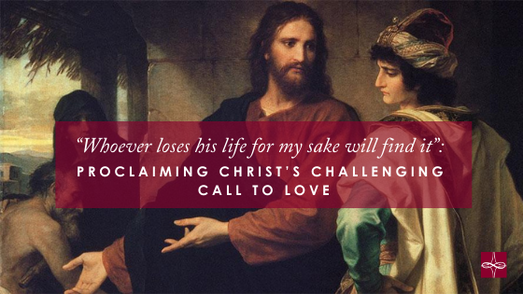

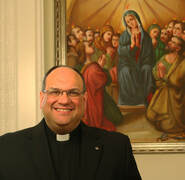
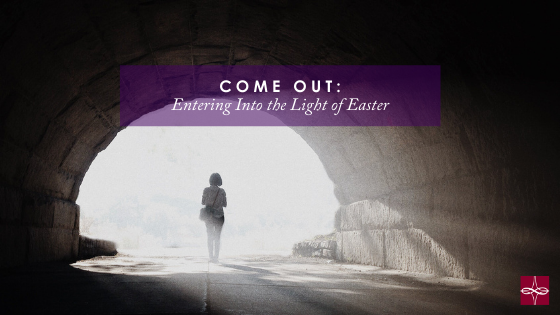



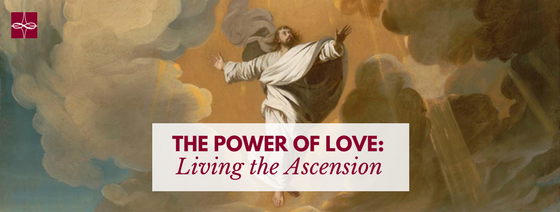

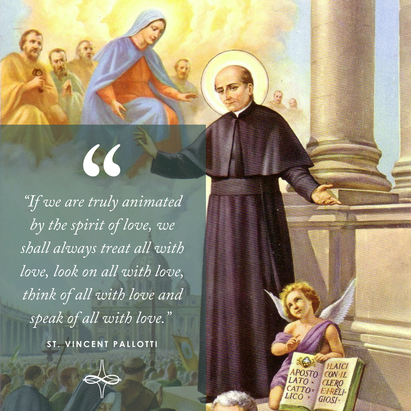
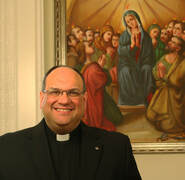
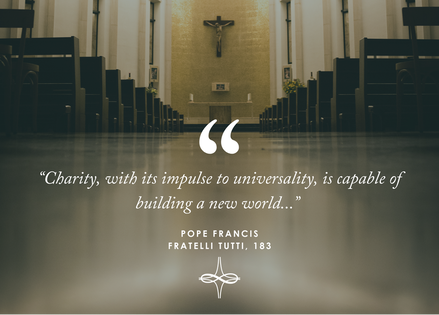
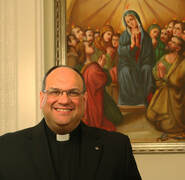
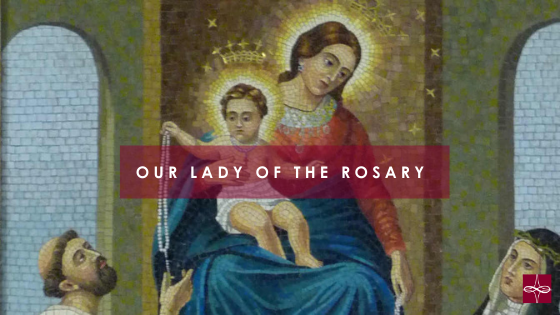


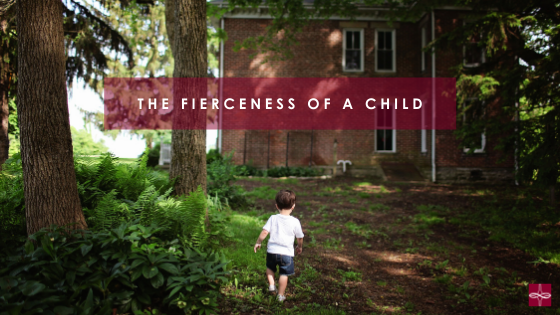








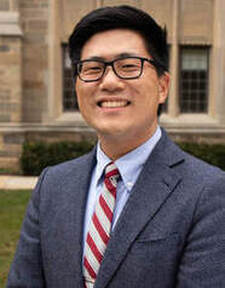
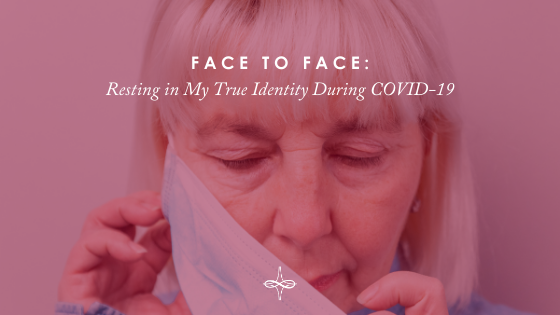
 RSS Feed
RSS Feed